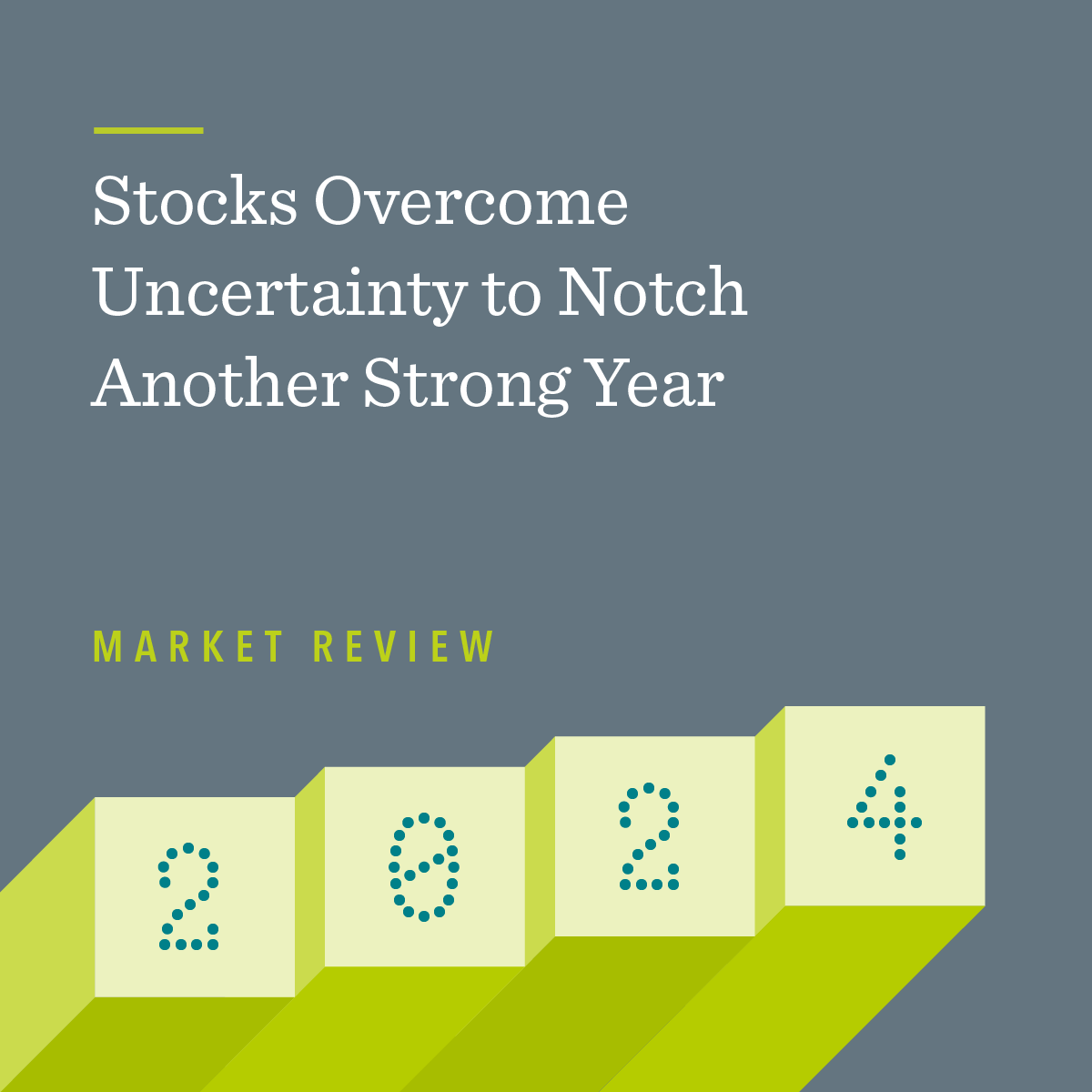How you pursue your financial goals more than likely doesn’t occur on a straight-forward trajectory or in a predictable manner. Instead, it is more like riding a roller-coaster with predictable and unpredictable ups and downs.
Unlike a linear progression, where success is pursued steadily over time, nonlinear financial success involves fluctuations, including periods of rapid growth, setbacks, and flat markets such as:
- Financial growth might come in spurts, with significant progress followed by periods of stagnation or losses.
- External factors such as your circumstances can impact your financial success in ways that are difficult to predict.
- Understanding the potential for setbacks is part of the journey that requires discipline and patience.
This perspective emphasizes the importance of taking a long-term view, recognizing there will be short-term fluctuations. Also, based on historical data, markets tend to rise over longer periods.
That’s why at Cogent Strategic Wealth, our proprietary three-step Design | Build | Protect® process relies on Evidence-Driven Investing™ to make rational, data-driven decisions to assist you in pursuing nonlinear financial success, regardless of the economic or market conditions.
There are three key strategies that Evidence-Driven Investing™ relies on, which we’ll discuss in more detail.
- Do you “lone wolf” it, make investment decisions based on intuition, or rely on evidence-based market data?
- Building a portfolio designed to match market performance is preferable to taking incremental risk in an attempt to beat the market.
- Steering clear of particular behaviors that cause you to make poor financial choices at the wrong times
Do You “Lone Wolf” it or Rely on Evidence-Driven Market Data?
Before we had solid evidence-driven investing data, people thought the best way to make money in the markets was to follow traditional buy-low, sell-high investment principles.
It may sound easy, but emotion-backed investment decisions rarely work over longer periods.
For example, to succeed, you must be able to predict short-term market movements and pick a high percentage of winning stocks while avoiding the underperformers. No one has a crystal ball that can predict the future.
However, this old-school approach of beating the market with superior decision-making is flawed.
Evidence-based research has shown that markets may seem chaotic but are influenced by larger economic forces: Inflation, recessions, government policies, interest rates, etc. Instead of thinking you can beat market rates of return, it’s better to assume unpredictable forces are impacting the prices of securities that are difficult to predict.
Consider the Efficient Market Hypothesis: Everything that can be known about a stock is known and reflected in its price. In other words, the combined wisdom of 200 Wall Street analysts following a stock is reflected in the price, making it difficult to “beat” the market.
Building a portfolio that produces market rates of return makes more sense.
The next thing to grasp is how market prices are set. What makes market prices change? It all starts with the constant stream of world news. This leads us to another important investment principle: You should not base your investment decisions on yesterday’s news. That information is already reflected in the security price.
Here’s why. Members of the media are not analysts or portfolio managers. There role is to document the news after it has happened. Opinions are also suspect because media members are not investment professionals. You should not be making investment decisions based on speculative media commentary.
The need for speedy decision making in a digital world is exacerbated by electronic trading where decisions and executions are driven by software in a second or two.
So, unless you’re one of the first to respond to breaking news (competing against automated traders who react in milliseconds), you’ll likely buy higher or sell lower than those who have already set current prices based on recent news.
“Performance comes, performance goes. Fees never falter.” – Warren Buffett
It’s also not a productive idea to rely on market-forecasting financial “gurus.” You may know a stockbroker, fund manager, or media personality whose views are covered by the broad media. They do not have track records and are adept at making their mistakes disappear.
The bottom line is that using evidence-driven investing strategies can help you make the right investment decisions for your circumstances in a variety of market conditions. First, we emphasize the preservation of your current assets. Next, based on your tolerance for risk, we want to make the assets grow in value to offset erosion—for example, distributions, taxes, and inflation.
“How Cogent Strategic Wealth Can Help”. Watch our video here.
Aligning your portfolio to work with the market’s expected outcomes versus trying to outperform an efficient market
When you invest in the securities markets, you are not promised to achieve your target returns or even get your initial investment back. This uncertainty is why we strongly support Evidence-Driven investing. Staying committed to your choices is easier when they’re based on solid, rational investment data and strategies.
Some leading economic scholars began studying portfolio management data in the 1950s. Evidence-driven research wasn’t about cherry-picking data to suit their narratives. It was about an unbiased, objective approach with comprehensive data analysis, repeatability, reproducibility, and formal peer reviews.
This rigorous research has identified at least five sources of premium return possibilities.
- Stocks have outperformed bonds and cash equivalents (CDs, t-bills) over longer periods.
- Small-company stocks have generally outperformed large-company stocks.
- Higher-quality stocks with lower price/earnings ratios have tended to outperform stocks with higher prices relative to earnings.
- Forward rates stand out in this research as the most reliable and the most useful metric for targeting bonds with higher expected returns in portfolios.
- Our research-backed approach to investing focuses on duration, credit quality, and currency of issuance as the variables that allow us to systematically identify fixed-income securities with higher expected returns.
Fiduciary financial advisors work to understand not only whether these return factors exist but also why they exist. This helps them build evidence-driven portfolios that reflect all of these performance indicators.
Beyond the five key factors (equity, value, small-cap, term, and credit), ongoing research has uncovered additional factors that impact portfolio performance.
- Companies that reinvest heavily in their businesses tend to deliver lower returns than those that distribute more of their earnings to shareholders as increasing dividends.
- Companies with higher earnings per share tend to outperform companies with lower earnings per share.
- Stocks that have recently performed well or poorly often continue to do so for longer periods than mere chance.
- Avoid behaviors that cause you to make poor financial decisions during down markets.
Watch our short video: “Is More the Right Mindset for You?”
Steering clear of typical behaviors that push you to make poor financial choices at the worst of times
Let’s discuss the final and most important part of an Evidence-driven investment strategy—the human factor. Your emotional reactions to market events can have a major impact on your investment results.
Despite everything we know about efficient capital markets and all the evidence that should guide our investment decisions, we still have emotions that impact our decision-making. Our decisions are impacted by a wide range of emotions that can cause us to make the wrong decisions.
For example, we should be buyers when securities prices are lower. Instead, an emotion (fear) causes us to sell to avoid additional losses.
As neurologist and financial advisor William J. Bernstein puts it, “Human nature turns out to be a virtual Petrie dish of financially pathologic behavior.”
So, what happens when we stir up that proverbial Petrie dish?
When markets tumble, fear grips your stomach, and every instinct screams, “Sell!”
When markets unexpectedly soar, greed may grab hold, convincing you to act fast and “Buy” before prices increase.
These are two examples of how emotions can interfere with pursuing long-term financial goals.
While quick reactions often serve us well in daily life, in finance, where a cool head should prevail, many of our “instincts” cause more harm than good. If you don’t recognize or manage these emotions, your brain can cause you to believe you’re making rational decisions when responding to fear or greed.
This is one reason we suggest working with a fiduciary financial advisor in St. George and Chicago who can help you avoid emotional pitfalls that undermine the pursuit of your goals.
Get to Know Cogent Strategic Wealth
Cogent Strategic Wealth helps high achievers manage their wealth with a Design, Build, and Protect process based on Evidence-Driven Investing™.
First, we design a personalized plan by understanding your current circumstances, concerns, tolerance for risk, goals, and priorities. Then, we build a tailored investment strategy, focusing on proven methods and data-backed decision-making.
Then, we protect the plan by regularly reviewing and making adjustments as necessary.
This comprehensive approach ensures an adaptable financial plan that leverages the latest research and helps you make disciplined investment decisions in various market conditions.
Ready to learn more about our Evidence-based Investing™ strategies? Connect with us.
For informational and educational purposes only and should not be construed as specific investment, accounting, legal or tax advice. Cogent Strategic Wealth provides investment advice only through individualized interactions. Certain information is based upon third-party data, which may become outdated or otherwise superseded without notice. Third-party information is deemed to be reliable, but its accuracy and completeness cannot be guaranteed. Indices are not available for direct investment. Their performance does not reflect the expenses associated with the management of an actual portfolio nor do indices represent results of actual trading. Information from sources deemed reliable, but its accuracy cannot be guaranteed. Performance is historical and does not guarantee future results. Neither the Securities and Exchange Commission (SEC) nor any other federal or state agency have approved, determined the accuracy, or confirmed the adequacy of this article. © 2024, Cogent Strategic Wealth®



